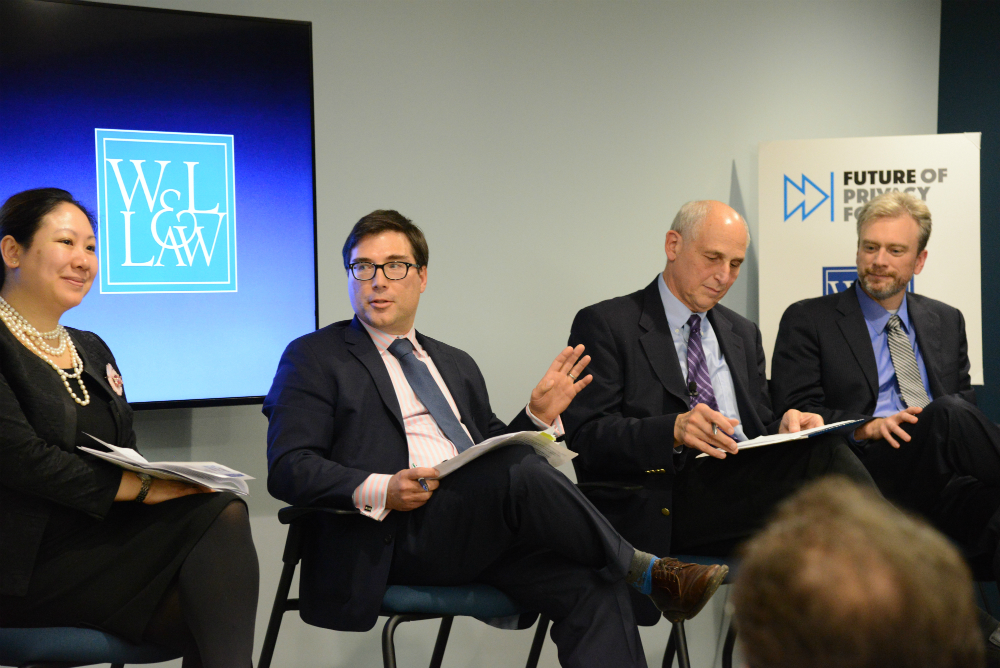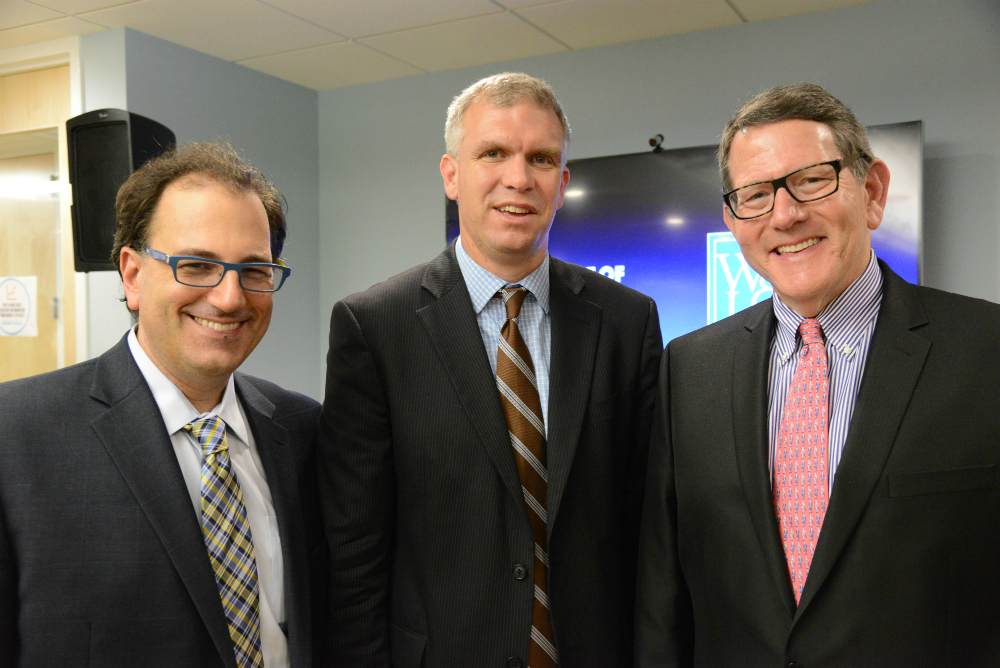Panelists Debated Materiality and Privacy Harms under the FTC’s Section 5
On November 5, the Future of Privacy Forum and Washington & Lee University School of Law co-hosted a panel on the Future of Section 5 of the FTC Act. The Federal Trade Commission Act permits the agency to bring civil enforcement actions under Section 5 against companies who engage in “unfair or deceptive trade practices.” Our panel of esteemed academics and professionals included David Vladeck (Professor of Law, Georgetown University Law Center), James Cooper (Director of Research and Policy, George Mason University School of Law, Law and Economics Center), Joshua Fairfield (Professor of Law, Washington & Lee University School of Law), and Margaret Hu (Assistant Professor of Law, Washington & Lee University School of Law). The panelists engaged in an hour of lively discussion about the nature of recent FTC rulings under this authority, and expectations for companies in the future.
Much debated among the panelists was the issue of materiality, or the requirement under the FTC Act that unfair trade practices be “material” to consumers before the FTC can bring an enforcement action. Only days after the Supreme Court heard oral arguments in Spokeo, Inc. v. Robins—a case about whether a man was harmed by having false information published about him online—this topic of privacy-related harm was on everyone’s mind. The Schrems Safe Harbor case from the European Court of Justice was also mentioned as it might relate to determining harm in the future.
The panelists diverged in their reactions to the FTC’s recent enforcement action against Nomi Technologies, a consumer analytics company that provided retailers with the technology to track in-store consumers by collecting their cell phone MAC addresses. At issue was the fact that Nomi’s privacy policy promised consumers the ability to opt out of the tracking—either online or in-store—but did not provide the in-store option. While Professor Vladeck called the case a “classic right to lie,” James Cooper called for empirical economic studies to determine when and how consumers are harmed. The key questions—how can something we all agree no one reads (a privacy policy) influence consumer behavior, and does that matter in terms of enforcement of companies’ public statements?—didn’t have an easy answer.
On the subject of types of cases the FTC brings and will continue to bring, Professor Vladeck noted that the FTC brings cases to make a point, and to keep the marketplace free of deception and unfair practices for the sake of both consumers and businesses. In the winning analogy of the night, he stated: “The FTC’s principal role is to be the gym teacher at the prom.”
Following the panel, the Future of Privacy Forum was delighted to host an Open House Reception to welcome everyone to its new offices, and to celebrate its new partnership with Washington & Lee University School of Law. Thank you to everyone who joined, and we hope to see you again soon!

Panelists (left to right): Professor Margaret Hu, James Cooper, Professor David Vladeck, and Professor Joshua Fairfield.

Left to right: Jules Polonetsky (Executive Director and Co-chair, Future of Privacy Forum), Dean Brant Hellwig (Washington & Lee School of Law), and Christopher Wolf (Founder and Co-chair, Future of Privacy Forum)



